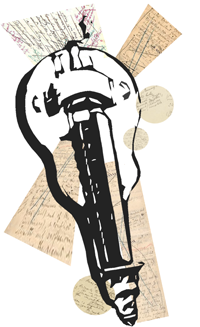Courtney Love gives me the fantods. So while I was looking forward to seeing the Kurt Cobain documentary Montage of Heck, I knew there would have to be a Courtney reckoning. About a third of the way into the film, there she was in all her literally breathtaking, chain-smoking, glory. I hunkered down for the ride.
I never subscribed to the “Courtney ruined Cobain” theories of fans and family, including her father Hank Harrison, who wrote a book claiming Love was directly responsible for Cobain’s death from a self-inflicted gunshot wound. The movie strongly suggests Cobain had started taking heroin before he met Love, and he shows genuine affection for her throughout the film. Criticisms of Love in the press absolutely shatter him. Was she an enabler? Certainly, but all addicts seek enablers, and if it hadn’t been Love then Cobain would have found someone else.
Love has genuine talent, as the punk rock badass fronting the band Hole, as the funny and smart fashion icon, and as an actress when she’s in the mood and doesn’t sabotage her opportunities. The main relationship Love has with humanity is collecting Exes: ex-manager, ex-friend, ex-lawyer, ex-director, ex-employee. Even ex-daughter. Frances Bean Cobain had herself declared legally emancipated from Love in 2009.
My disquiet with Love is much more complicated, and it appears almost immediately in the movie. Rumors swirled that while she was pregnant, Love continued taking heroin. She denies this and then doesn’t deny this; she wasn’t taking drugs, but if she had been taking drugs, what choice did she have since Cobain was using all the time. So no, but maybe yes, but either way Love emerges as the heroic victim in her version of events.
The director of Montage, Brett Morgen, appeared before the screening I saw and declared unprompted that neither Love nor Frances had influenced the cut of the movie in any way. I thought it an odd statement, but as the movie unfolded it made sense; no one can escape Love’s incessant need to control the narrative of any story in which she is even a peripheral member. Morgen was trying to fight against that perception.
Later in the movie, Love makes an unprompted comment of her own: she never cheated on Cobain. There’s a silence as though Morgen has been caught off-guard, and then you hear him ask outside the frame of the camera, “You never cheated on Kurt?” No, says Love, although she considered it once, but never told Cobain. Yet somehow he intuitively knew, became distraught and overdosed in Rome, narrowly surviving. The story is spellbinding and disturbing. Kurt loved me so much he tried to kill himself over the mere suspicion of unfaithfulness, claims Love, even though I’m totally innocent and never was.
I understand that there is never just one story, but many stories, depending on a person’s perspective and experience and agenda. But Love never desires to merely tell her story; she wants to obliterate all others. That impulse changes you from a participant in a complex history to a bully trying to cower all others, and it’s that impulse that always unnerves me when Love starts talking. As someone that often feels like a cameo in my own stories, I cant’ seem to come to grips with that assertiveness.
I kept wondering if Frances Bean would appear in the movie, but she never did. I suspect she understands, better than anyone, that trying to offer any alternatives to Love’s whirlwind will always prove futile. There’s no chance of piercing that haze of smoke surrounding the voice of Love.






